Soldier-Talk
| Soldier-Talk | |
|---|---|
 | |
 | |
| Studio album by The Red Crayola | |
| Released | March 1979 |
| Recorded | |
| Studio |
|
| Label | Radar |
Soldier-Talk is a 1979 album by The Red Crayola.
Track list
| No. | Title | Length |
|---|---|---|
| 1. | "March No. 12" | 2:01 |
| 2. | "On the Brink" | 2:55 |
| 3. | "Letter-Bomb" | 2:03 |
| 4. | "Conspirators' Oath" | 2:41 |
| 5. | "March No. 14" | 1:22 |
| 6. | "Soldier-Talk" | 7:06 |
| No. | Title | Length |
|---|---|---|
| 1. | "Discipline" | 3:25 |
| 2. | "X" | 3:13 |
| 3. | "An Opposition Spokesman" | 5:02 |
| 4. | "Uh, Knowledge Dance" | 2:57 |
| 5. | "Wonderland" | 3:00 |
Background
Mayo Thompson began working with drummer Jesse Chamberlain during the recording sessions for Art & Language's album Corrected Slogans around 1975. The duo also performed in two Art & Language 'Music-Language' video projects in 1976: Nine Gross and Conspicuous Errors with the UK group and And Now for Something Completely Different with the New York group. Both Art & Language groups dissolved in early 1977 and Thompson moved to the UK.
In 1978, the recently founded British label Radar Records began to release the first reissues of the International Artists catalog from the 1960s, including the 13th Floor Elevators and the first two Red Crayola albums. Thompson took the opportunity to sign with Radar to release new Red Crayola music as a duo with Chamberlain. Thompson also became involved in Rough Trade Records as a producer.
In the fall of 1978, the Red Crayola released their first singles Wives in Orbit and a re-recording of "Hurricane Fighter Plane" and began touring with Pere Ubu in Europe. The two bands became close, with bassist Tony Maimone and synth player/saxophonist Allen Ravenstine joining the Red Crayola on stage for multiple songs per show.
After the two short Pere Ubu tours, the Red Crayola recorded Soldier-Talk with contributions from each member of Pere Ubu as well as saxophonist Lora Logic of Essential Logic (previously of X-Ray Spex).
Soldier-Talk was released in March 1979 on Radar Records.[1] Two songs, "March No. 14" and "Discipline" appeared previously as backing tracks for spoken word pieces on Corrected Slogans.
The Red Crayola toured the album as a trio (Thompson, Chamberlain, Logic) supported by Scritti Politti.
The band's next single Micro-Chips & Fish was passed on by Radar and released through Rough Trade.
Soldier-Talk was reissued on CD by Drag City in 2007.
Posters
-
Poster
-
Store display poster
Zine
Main article: Soldier-Talk zine
-
Cover
-
pg.1
-
pg.2-3
-
pg.4-5
-
pg.6-7
-
pg.16,19?
-
pg.18-19
-
Back cover
Cover art
The last two photos in the grid appear to depict the Van Brienenoord Bridge in Rotterdam, Netherlands. They may have been taken as the Red Crayola travelled from Paris to Rotterdam with Pere Ubu on December 14, 1978.
-
Van Brienenoordbrug postcard[2]
A similar grid of photos appeared on the cover of Three Songs on a Trip to the United States (1983).
Personnel
The Red Crayola
- Mayo Thompson - vocals, guitar
- Jesse Chamberlain - drums
Additional musicians
- Lora Logic - saxophone
- Christine Kozlov - additional vocals
- Dick Cuthell - trumpet
Pere Ubu
- Tony Maimone - bass
- Allen Ravenstine - synthesizer
- David Thomas - additional vocals
- Tom Herman - guitar
- Scott Krauss - drums
Retrospectives
Mayo Thompson, 2015[3]
[...] Jesse Chamberlain, who drummed and sang some on Corrected Slogans, joined me when Radar gave us a deal. I reformed the band because Christine [Kozlov] and I fell out with Art & Language. I had to get something going, so got back in the music business. Radar was rereleasing the International Artists’ stuff, so it was a natural for all concerned. It made sense to restart the group rather than pursue a solo music career.
[...] Punk qua form wasn’t about making interesting music, rather about music as self-realization. Even poor punk was interesting, though, particularly if it sold. That’s what made the Crayola viable. Sales made it interesting in a broader sense. [...]
Mayo Thompson, 1980[4]
No, there is no particular programmatic political message in Soldier-Talk [...] I don't think it really particularly has a metaphor [...] No, it's not particularly a comment [on the military situation in the world].
I just think the album is at its best when it's most expressive. That's why I think one of the best tracks is "Soldier-Talk." But it does have certain observations to make about noise that you hear in the street — things that are, in fact, going on. Not that I'm saying, "oh, look out, World War III's coming" or anything like that, or, "we must unite against the forces of..." I mean there was nothing like that about it. It's much more symptomatic, I mean, it's expressive and therefore it would be difficult for me to say there was anything particular about it, although I do have political commitments. [...]
Personally, I think the world can be a fairly confusing place to live in, and to try and sort your way through certain kinds of things can be, sometimes, a fairly daunting task. You try and sort out what contradictions are inescapable, in a certain sense, and what you can do about them. There are a lot of people going around agonizing over contradictions and wishing that they could destroy them. And yet the methods that they choose are all individually based. And it's impossible to eliminate contradictions as an individual. Contradiction is something that's determined, in my opinion, and it's something that can only be eliminated by organized action. [...]
That album is much about world powers arguing, struggling against each other. It's also as much about the internal struggles. Civil war, if you like; the preludes to civil war. And the fact that... the obvious fact that in a pluralistic Western so-called democratic style of government — they're a consensus government, a utilitarian-based notion of government where you're talking about the greatest good for the greatest number and fuck the rest. You have these kinds of conflicts all the time, you have these tensions, and a lot of it came out of that sort of stuff. A lot of it is also ironic. [...]
Jesse Chamberlain, 1980[5]
Mayo taught me a lot as far as 'just play - anything works in music, anything goes'. We had a great time, but as far as politics, I couldn't understand a lot of what he was talking about. Mayo had a grudge against the world. He was kind of an angry young man. I looked at it from a musical point of view - I got to play angry young man lyrics.
Mayo Thompson, 1986[6]
Jesse – there wasn't much for him to do, in a way, I think he wanted to say what he felt about the record, and he wanted it closer in the direction of pop, because Jesse, that's always been one of his gifts, and I was determined to make the record work, and thought that it could, and should, and working with Geoff Travis, using his insights into the way music works, there was no other way it could be… because those songs, they're all very schematic, not all of them, but... they don't have choruses all the way, maybe a motif is repeated but it's not repeated in exactly the same way... it's changed in terms of the time signatures, it's a complicated work.
Reviews
Melody Maker
April 28, 1979[7]
Jon Savage
Sounds
June 1979[8]
Hans Keller
Texas, 1967. Ein paar junge Leute probieren in einem Studio auf ungewöhnliche Art Musik zu machen. Die Zeiten sind "psychodelisch", es wird experimentiert, in Texas und anderswo. Die Leute um Mayo Thompson versuchen mit Hupen, Glocken, allen möglichen ungewöhnlichen Instrumenten, rückgeköppelten Gitarren, Endlos-Tonbandschleifen eine Musik zu machen, die die vorgegebenen Normen durchbricht. Zwei Platten entstehen, sie beinhalten lange, freie Improvisationen und Strukturmusik und sind schon lange nicht mehr als Original erhältlich.
Zwölf Jahre später. Was ist geschehen? Psychedetic und New Wave/Industrial Rock sind in eine Fusion eingegangen. THE PARABLE OF ARABLE LAND, die Platte von 1967, kommt wieder (auf Radar) raus. Und Red Crayola sind wieder da. Mayo Thompson und der Drummer Jesse Chamberlain sind der Kern, sie touren mit den seelenverwandten Pere Ubu (die auch auf SOLDIER TALK mitgeholfen haben). Was immer Thompson in der Zwischenzeit gemacht haben soll, SOLDIER TALK ist so überzeugend, als hätte er nie eine Sekunde aufgehört, seine Musik zu machen. Allerdings, einiges hat sich geändert, das Sphärische, frei Improvisierte ist fast ganz verschwunden. Charakteristisch für Thompsons heutige Musik sind vorallem eine archaisch-einfache vor allem eine archaisch-einfache Gitarrenarbeit. Denkbar einfache, aber ungewohnte Riffs mit einem metallischen Insekten-Sound sorgen für eine starke Prägnanz, dazu kommt der wilde, teilweise hektische Schlagzeug-Stil Chamberlains, atemlos-abrupte Taktwechsel hezten vorbei, es geht manchmal sogar in Richtung Free-Jazz. Der Gesang, oder besser Sprechgesang, ist oft ein exaltiert-üb erzogenes Schreien. Bestes Beispiel dafür bietet wohl "Soldier Talk", das Titelstück, eine wahre Schlacht sich überschneidender Stimmen. Die Texte sind, grob gesagt, eine ironische Betrachtung zeitgenössischer Umstände, z.B. des Militärs {das mit einem verhunzten Zapfenstreich gleich zu Anfang auf die Schippe genommen wird) , oder etwa der „ Disziplin ' (musikalisch schleicht sich in dem Song "Discipline" sogar Funk ein, natürlich so schräge, wie Red Crayola ihn verstehen), das jedenfalls läßt sich aus dem wenigen, was man von Texten verstehen kann, heraushören: Witz und Humor spielen bei Red Crayola eine wichtige Rolle, musikalisch und textlich. SOLDIER TALK ist hiermit zur Entdekkung freigegeben.
Walrus!
June 4, 1979[9]
Obscure. Musically the antithesis of their basic name. They are between jazz and rock but, not in the fusion category. Experimental. Special Programming.
Record World
June 9, 1979[10]
Jeffrey Peisch
You've heard of new wave, and you may have heard of no wave; well now there is avant wave, and its chief spokesmen are groups like The Red Crayola and the Pop Group, who each have new releases on Radar. While the two groups have distinctive sounds, they are similar in some respects. Much of their music is dissonant and without rhythm; some of it is downright cacaphonous. Bits and pieces of Captain Beefheart (large pieces), Soft Machine and Pere Ubu can be heard in the two groups' music. (Members of Pere Ubu play on the Red Crayola album). One should know what they're getting into before rushing out for these records.
Slash
August 1979[11]
Z
Stretch a point, you got a line. Two lines, you got a lane. Drive a car, or a train of though through that lane, on the soundtrack on the most irritating, jangly guitar sound, the treble up to ten square, and the best drummer of the year playing a snare drum as sharp as a bullwhip crack. Poly-poly rhythm fragments. A hard dose of cranium salts, pushing against your frontal lobe with the humour of a psychotic — who else rhymes "Eastern Europe" and "pancakes with syrup". Yeah that voice has the same on-the-edge-of-psychosis as David Talking Head, but this guy has been around twice as long. He must have been, to put this concept together. But what is the concept? Stretch a point, make a line, these lines hold the instrumental and vocal sections together in such a cryptic graph you need a decoder to sort it out. All right, make the people understand, use the adjective: Avant Jazz Psychedelic Folk Rock. What, you don't understand? Albums like this and the Pop Group are creating a music that you can't passively use for background music — you must commit yourself, body and foggy brain. Not ready yet? All right, repeat after me — make a point. Till its pointless. Logic is logic unless it isn’t logic — my brother grew potatoes but you grew tomatoes-—starting to get it? That o.k., buy it now and five years when it assumes neglected masterpiece status you won't have to pay bloated prices for the reissue. Meanwhile if you're not quite ready for this, there's always the new Devo album — compared to this it’s a first grade reader. But at least it won't give you a headache. Now give me a beer, albums like this are too much hard work — ahh, that’s better. This is a pretty incredible you know — glurg, glurg, glurg.....
Nuvox
January 1985[12]
Walter Ziese
Unbeirrbarer, stampfender Rhythmus, im Gleichschritt. Sonst ist alles schräg. Trompete veranstalten Kriegsgeschrei. Das Sax ist alles andere als soft. Menschenkörper, eingezwängt in quadratische Soldatenpanzer, marschieren verzweifelt. Keiner hat irgendeine siegesbesessene Kampfeshymne auf den Lippen. Alle haben Angst. Einer singt verzweifelt eine Liedphase: »Civilisation is burning down, burning down«. Der Gitarrensound ist aus Stahlhelmblech gemacht, zerreißend verzerrt. Befehl- und Gehorsamsgeschrei »you made me a slave by hammer«. Soldier-Talks, Soldatengespräche handeln von samenbekleckerten Girls und meinen »verklebten Eiern«. Zerquetschte Sinnlichkeit. Die musikalische Disharmonie dieser Platte klingt nach Verzweiflung.
Scaruffi
Piero Scaruffi[13]
Drag City
2005[14]
Soldier-Talk was petit-guignol, abstract intrigue met sotto-voce political assertion. It traded in part in a crypto-normal hyper-expressivity that had something to do with punk. Comprised of a set of songs, it approached the very idea of punk as activism, the thought of independence as identity, and politics of “will,” “can” and “nothing.” In addition to the RC it featured Lora Logic (X-Ray Spex, Essential Logic), Dick Cuthell (The Beatles, The Specials) and members of Pere Ubu, among others. Ms. Logic subsequently joined the band. The record was remaindered within a year and remains unavailable.
Pitchfork
April 2, 2007[15]
Douglas Wolk
Dusted
April 10, 2007[16]
Jon Dale
AllMusic
Thom Jurek[17]
Coffee-Table Notes
March 16, 2019[18]
Neil Cooper
References
- ↑ April 1, 1989 source lists as an album out that week a decade ago: https://www.worldradiohistory.com/UK/Sounds/80s/89/Sounds-1989-04-01-S-OCR.pdf#search=%22red%20crayola%22
- ↑ https://www.skyscrapercity.com/threads/oude-ansichtkaarten-maastunnel-en-van-brienenoordbrug.865152/
- ↑ https://bombmagazine.org/articles/mayo-thompson/
- ↑ Mayo Thompson interview July 25, 1980
- ↑ https://web.archive.org/web/20000524022632/http://www.chrisspedding.com/paper/80/0315.htm
- ↑ https://www.furious.com/perfect/redcrayola.html
- ↑ https://www.rocksbackpages.com/Library/Article/red-crayola-isoldier-talki-radar
- ↑ http://subkultur-ost.de/Sounds%2006-79%20(Hamburg%20Fanzine%20%6079OCR.pdf
- ↑ https://www.worldradiohistory.com/Archive-All-Music/Walrus/1979/Walrus-Magazine-1979-06-04.pdf#page=21
- ↑ https://www.worldradiohistory.com/Archive-All-Music/Record-World/70s/79/Record-World-1979-06-09.pdf#page=91
- ↑ https://archive.org/details/slash_circulation_zero/page/n668/mode/1up
- ↑ http://subkultur-ost.de/Nuvox%2001-85%20(Friedland)%20Fanzine%20%6085OCR.pdf
- ↑ https://web.archive.org/web/20020102084435/https://www.scaruffi.com/vol2/redcrayo.html
- ↑ http://white-rose.net/redcrayola/dc257bio2.pdf
- ↑ https://pitchfork.com/reviews/albums/9938-soldier-talk/
- ↑ http://www.dustedmagazine.com/reviews/3503
- ↑ https://www.allmusic.com/album/soldier-talk-mw0000577583
- ↑ https://coffeetablenotes.blogspot.com/2019/03/missing-in-action-40-years-of-soldier.html



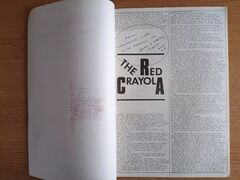
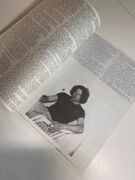
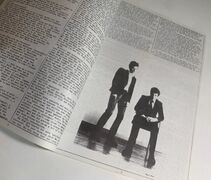
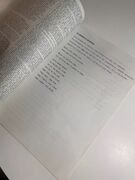
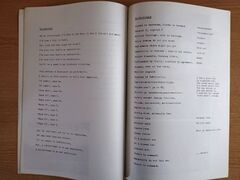
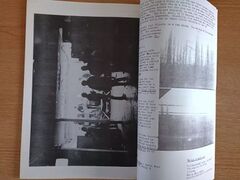
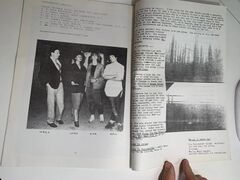
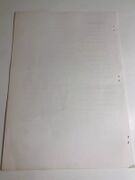
![Van Brienenoordbrug postcard[2]](/w/images/thumb/0/07/Van-Brienenoordbrug-postcard.jpg/261px-Van-Brienenoordbrug-postcard.jpg)